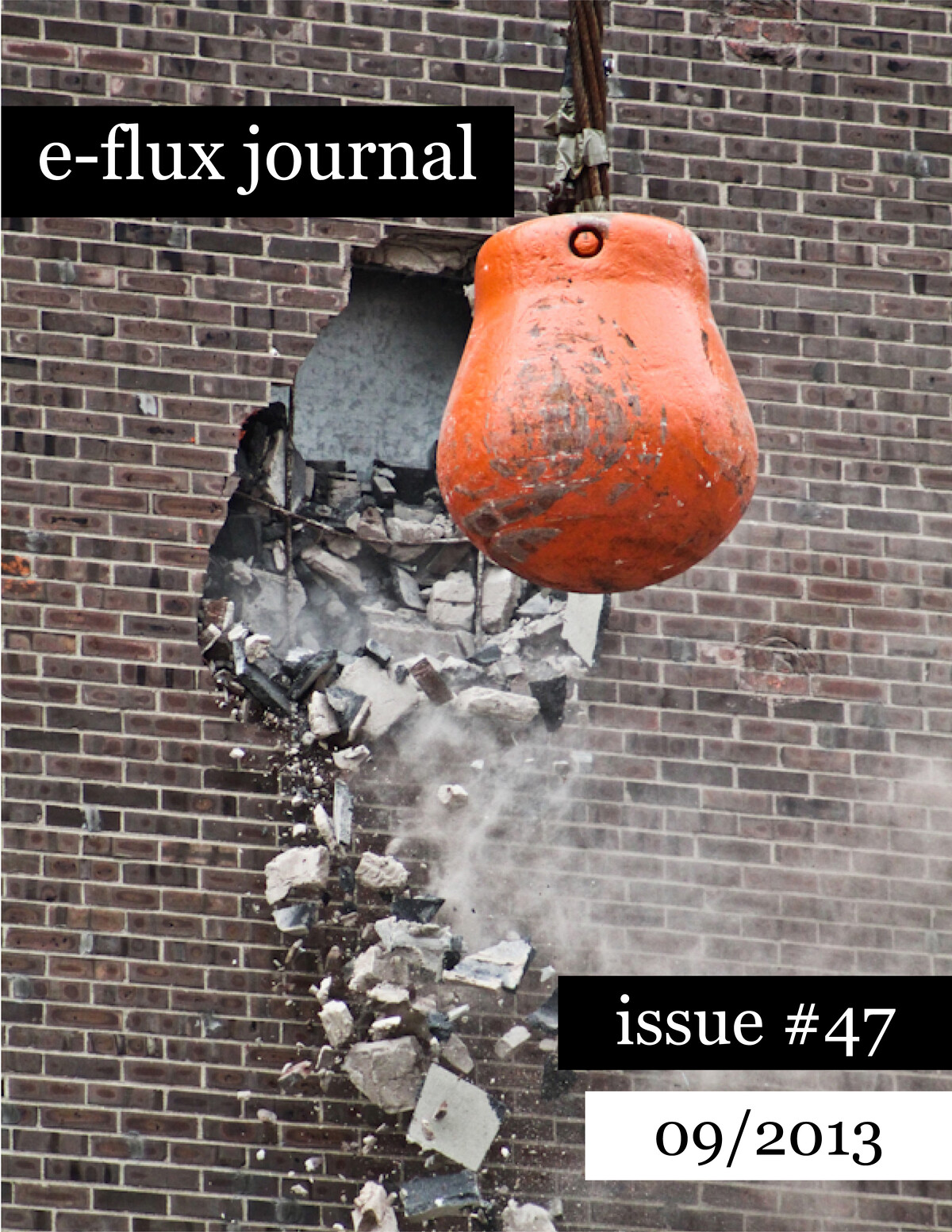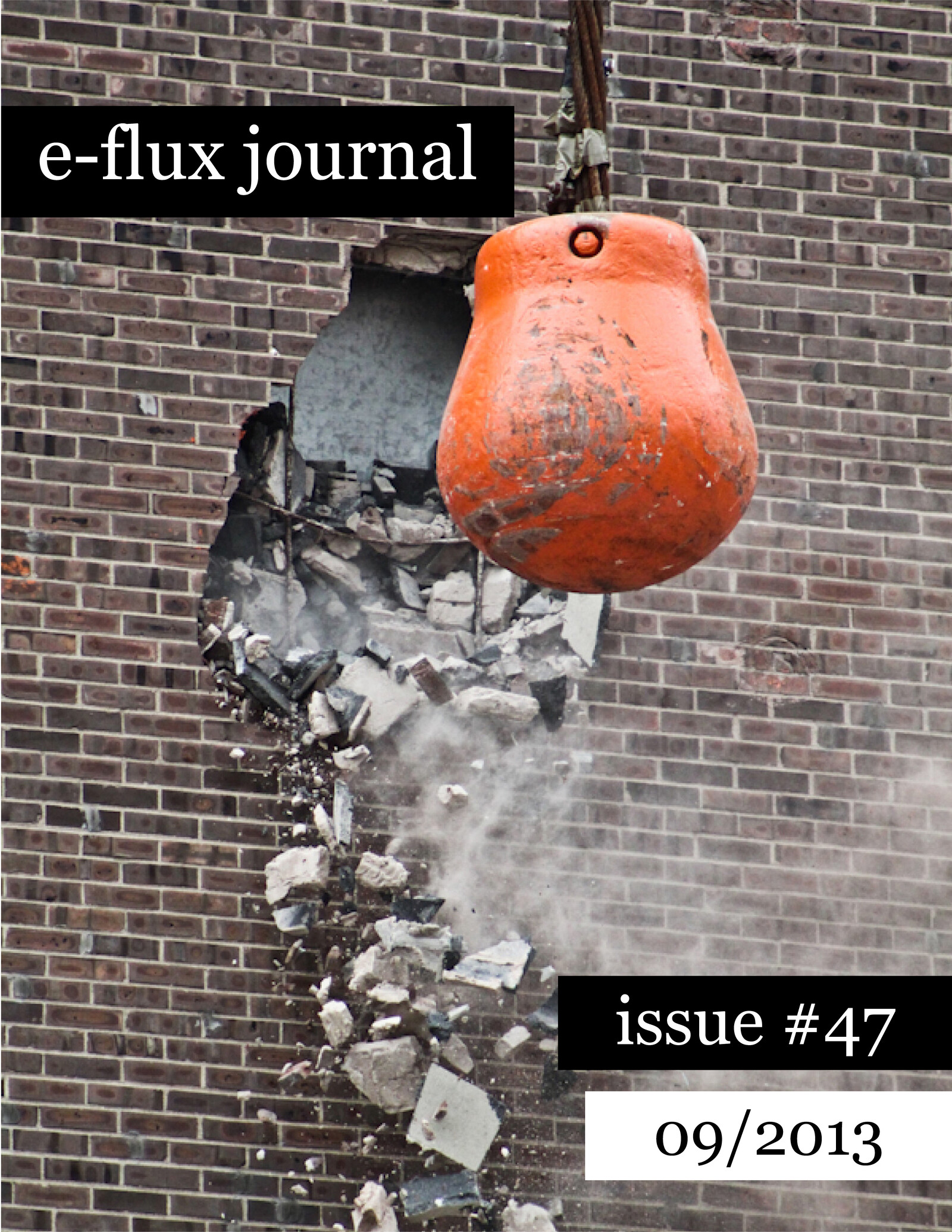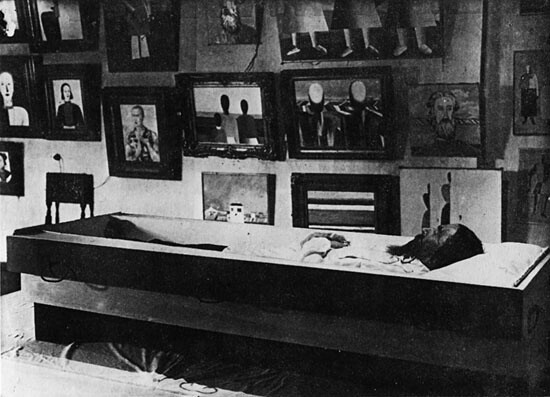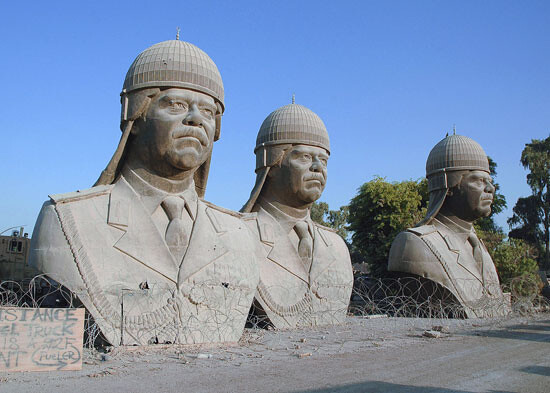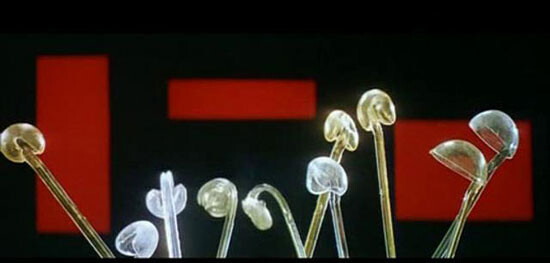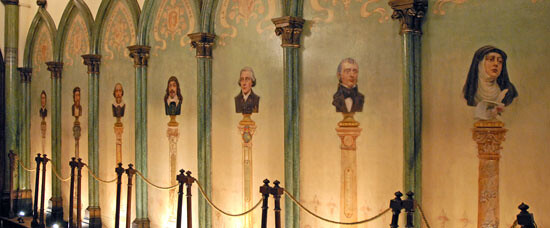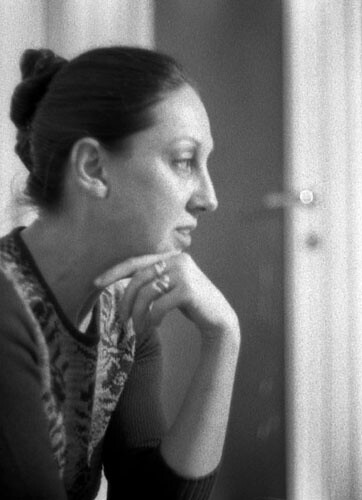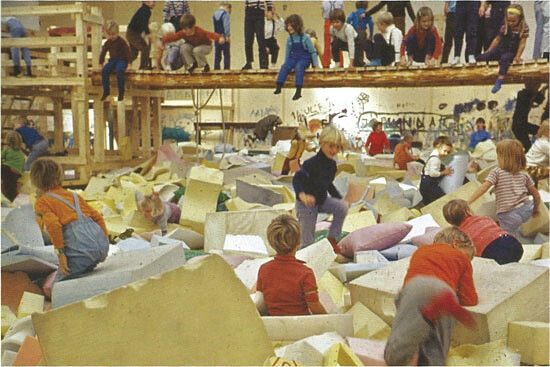The central question that unavoidably dominates today’s thinking and speaking about the Russian avant-garde is the question regarding the relationship between artistic revolution and political revolution. Was the Russian avant-garde a collaborator, a coproducer of the October Revolution? And if the answer is yes, can the Russian avant-garde function as an inspiration and model for contemporary art practices that try to transgress the borders of the art world, to become political, to change…
Issue #47
September 2013
With:
Julieta Aranda, Brian Kuan Wood, Anton Vidokle, Boris Groys, Nato Thompson, Amanda Boetzkes, Andrew Pendakis, Jon Rich, Claire Fontaine, and Lars Bang Larsen
Where do artifacts go when they are destroyed? They enter a void of historical erasure, of fabricated narratives and convenient amnesia. We used to call that place a museum. But what happens when a museum is itself destroyed, when it is burned or looted, when icons and artifacts turn to dust or fall back into the hands of people? Can we still access them, and do we even want to? As Boris Groys points out in this issue:
After all, what is the revolution? It is not the process of…
View List
View Grid
7 Essays
September 2013
This is a story about counterinsurgency as well as community organizing. It is a story about getting to know people as an occupying force, and getting to know people as neighbors. It is a story, ultimately, about the military entering the terrain of that thing called culture. This story has fascinating, hardworking protagonists such as General David Petraeus, socially engaged artists like Suzanne Lacy, and anthropologists-turned-military-consultants like Montgomery “Mitzy” McFate. It is…
Plastic is the very idea of its infinite transformation … it is ubiquity made visible … it is less a thing than the trace of a movement.
—Roland Barthes
Plastic weaves itself into every facet of our contemporary reality. It does not simply surround us, it is an epistemology and the reflection of a galling political impasse. It appears elemental; we rely on it for our built environments and for all the objects we fill them with—our toys and tools, all our gifts and trash. It…
The Hymnal
Some out there are passing around a prophecy about Pope Francis that speaks of him as the last Pope of the Catholic Church. After him the sky will shudder and God will bring the flood. This seems to be supported by the Church’s familiar numeric appendage to the Pope’s name: he is the first Francis but not Francis the First. Is it a sign or some papal scheming?
Pope Francis wants to replace the gold cross with one made of wood. He wants to give the church back to the…
Through feminism I freed myself from the inferiority-culpability of being clitoridian … and I accused men of everything. Then I started to doubt myself and to defend myself through every possible thought and inquiry into the past. Then I doubted myself completely in rivers of tears … After that I was no longer innocent or guilty.
— Carla Lonzi, Taci, anzi parla 1
Carla Lonzi was a feminist, an art critic, a woman seeking freedom, and above all a politically creative…
1.
The idea of a society without qualities is an indictment of a state that fails to provide a life of quality for its citizens. The society without qualities is one in which a systemic pressure on cultural and democratic institutions results in a whittling down of civil liberties. Where post-fascism is on the rise and where those who revolt are regarded by the elite as expendable. Where human relations are corroded in profitable ways and the future of the youth is mortgaged. And so you…
